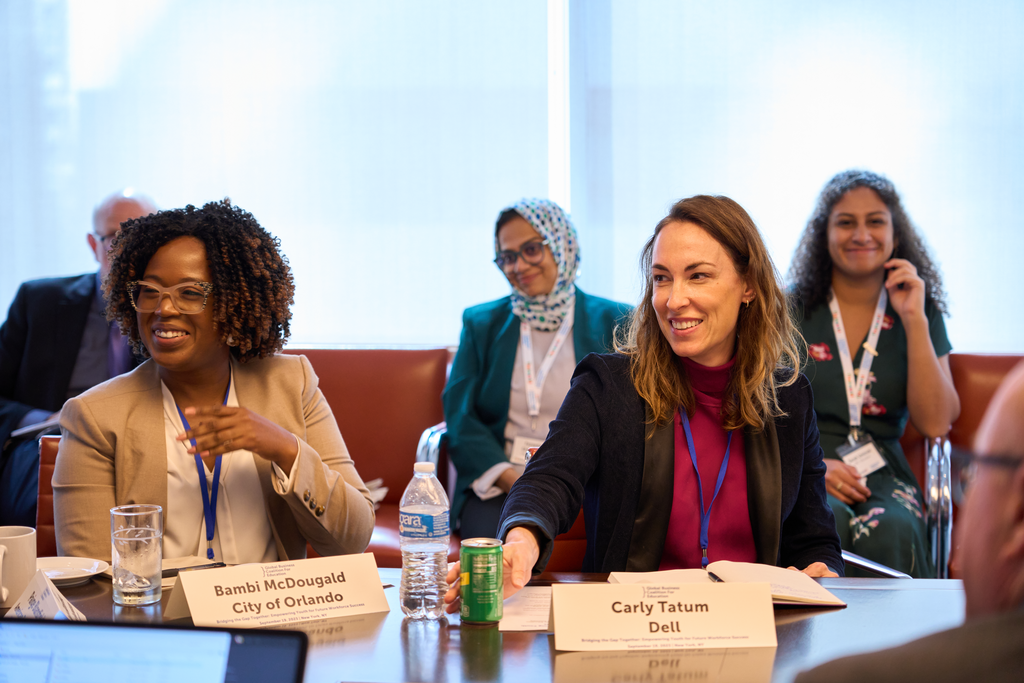Our Youth Skills and Employment Participant offers a wrap-around approach to reducing youth unemployment in the Central Florida region
When many people think of Orlando they would probably think first of Disney World and Mickey Mouse and one of the world’s most popular tourist attractions.
For all its appeal to visitors and its broad economic progress over the past few decades, what is less well known about the central Florida city is that it has communities which are at an historically major disadvantage, whose young people still struggle to gain a foothold in employment.
It is a story of disparity in wealth and lack of opportunity in poorer communities that is familiar around the US. The Global Business Coalition for Education launched the Big Ideas, Bright Cities Challenge in 2021 to encourage ground-level responses to the urgent problem that four million youth are not in school and employment in the US.
The Orlando Community & Youth Trust was selected as a runner-up for its Youth Employment Program, which provides career guidance and preparation, job training, and job placement to youth aged between 15 and 25. The trust has promoted and provided for the community’s youth and culturally diverse population since 1996 and through the Youth Employment Program, served 900 young people last year alone.
“Our students may be facing homelessness or unstable housing. They may have a parent that never completed high school. They are living under severe poverty levels. What happens to youth like that is the highest thing they probably dreamed about was a high school diploma,” says Bambi McDougald, the city’s Youth Employment Program Manager.
The Trust is a non-profit organization created to support the mission of the City of Orlando Department of Families, Parks, and Recreation and carries out the City’s mission to enhance the quality of life for youth and families living in the City of Orlando.
The City, with the support of the Trust, created four Kidz Zones, modelled on the Harlem Children’s Zone, which deploy a “full wrap-around approach towards eliminating chronic poverty, decreasing teenage pregnancy and substance abuse and criminal involvement”.
By levelling the playing field for children in chronically underserved communities, programming is provided from “cradle to career”, “making sure they have access to everything they need to be successful”.
The program offers employability skills: effective communication, including interview technique and preparation, and resume preparation among others.
“Just as importantly,” says Bambi, “is that the Trust is probably young people’s first encounter with anyone in relation to exploring employment.”
Though targeted at the most economically deprived areas, the Zones by default are located in three predominantly African-American neighborhoods, and one Hispanic neighborhood.
It employs adult members of the community who go into schools and into the community and tell young people of their positive experiences.
“It’s a matter of saying, ‘you know what, you don’t have to stop at high school. I’m an engineer, you can make it as an engineer. I grew up in a situation like yours, and this a real possibility’,” says Bambi.
Another part of that central message to youth is that there are other ways of making decent money other than being an athlete or performer; that even if college is not for them, that with the right apprenticeship they can end up earning a six-figure income as a plumber or electrician or in another trade.
“The truth is that many of kids have never considered those opportunities because they just don’t know what they look like,” says Bambi. “We’re able to sit down with them, and take the time to show them.”
Most of the program participants go into sales, education, childcare or recreation, sectors which are within reach of their homes.
But it’s not just a matter of giving young people a job. They are also guided on how money works, and how to spend and save their money. They are supported with housing, childcare or transportation or clothing to get them up and running.
Bambi concludes: “It’s amazing – and troubling – how much about [financial literacy and job readiness] that [the youth] don’t know…if someone didn’t step in and teach them, how many more cycles and how many more generations they would go through kind of being trapped?
“This is why they call it intergenerational poverty. If you asked me, ‘How do you break the cycle of intergenerational poverty?’, ‘all of the above’ would be the answer.”

